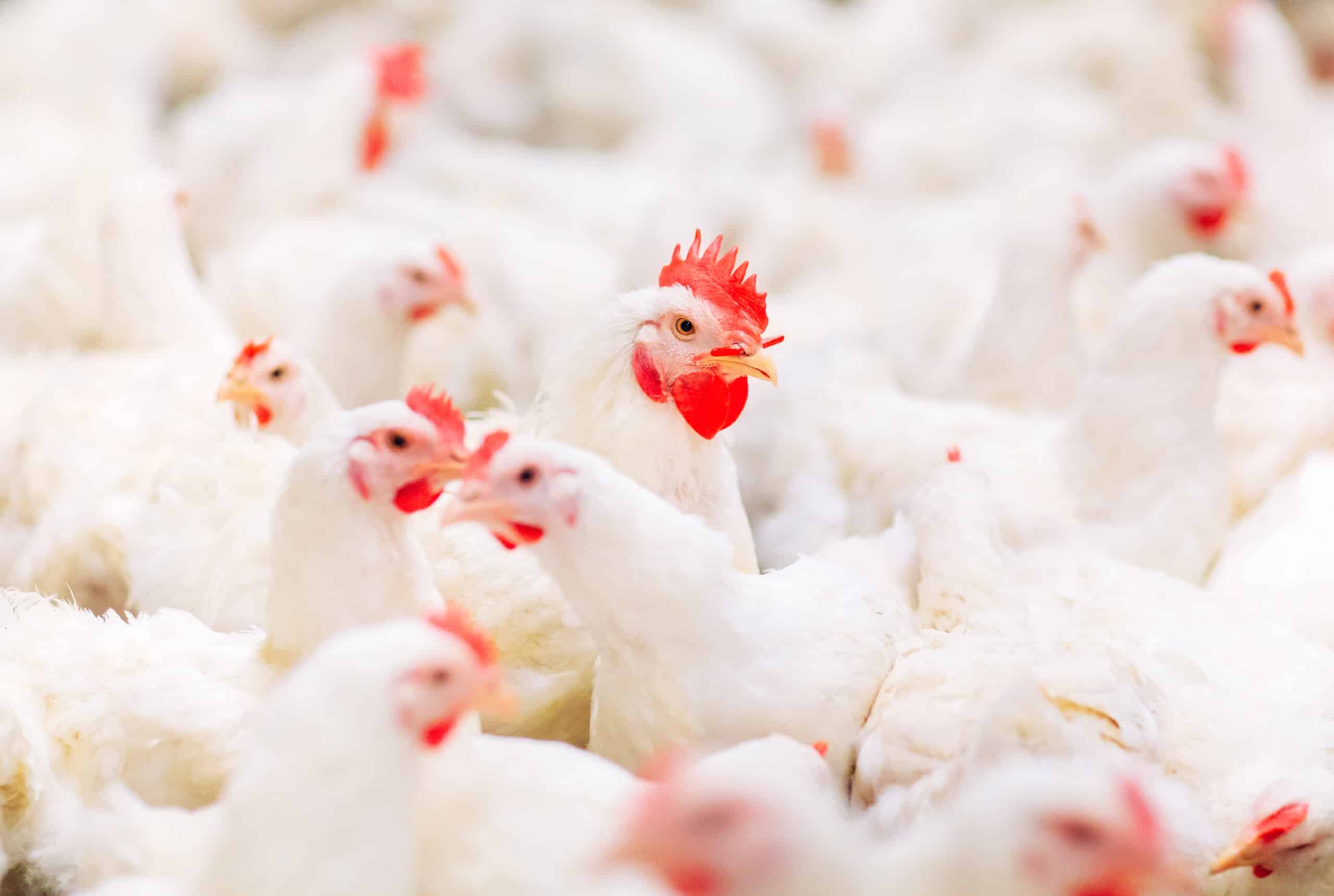Organic farming has become an important part of the global food system.
According to the FAO, the global area of land under organic farming has risen from 35.8 million ha in 2010 to 75.0 million in 2020. In addition, organic food sales continue to grow despite the disruptions of the Covid19 pandemic and growing economic uncertainty. In 2021 organic food sales in the US were over $63 billion, compared to a figure of $43 billion in 2016.
There have always been questions about the productivity of organic farming. Whilst there is plenty of evidence of environmental benefits, lower yields have always been seen as a key weakness for organic farming systems. Demand for food is rising, along with the need for action to safeguard the environment and reduce GHG emissions.
This article considers where organic farming fits into this?
Productivity in Organic farming
Current organic agriculture performs well in several sustainability domains, like animal welfare, farm profitability and low pesticide use, but yields are commonly lower than in conventional farming. In addition, there is great variation in the environmental, economic, and agronomic outcomes of practices, such as conservation agriculture, organic farming, and even integrated systems.
Lower yields have consequences for the adoption of organic farming, and its ability to meet growing food security needs. Some studies indicate that widespread conversion to organic farming would lead to increased GHG emissions due to lower yields per ha, and more cultivated land being needed to maintain the same level of production.
A study of the widespread conversion of farming in England and Wales to organic farming found there would be a shortfall of most agricultural products against a conventional baseline. Direct GHG emissions were lower under organic farming, but when increased overseas land use due to higher food imports is factored in net emissions are greater. Enhanced soil carbon sequestration could offset only a small part of the higher overseas emissions.
What is the difference between organic and conventional systems?
There is a legal basis for organic farming in many countries, however to many organic farming is simply farming without synthetic inputs. Organic farmers use livestock manure, legume forages/cover crops, and diverse crop rotations (including perennials and forage crops), to provide crop nutrients and improve the soil.
Maintenance of organic carbon in soil is vital for improved physical, chemical and biological processes in soil. Organic manuring, green manuring and composting are encouraged to improve soil productivity and to improve and increase the efficiency of microbes and natural fertilisers.
Can organic farming feed the world?
There has long been debate about whether organic farming can feed the world’s population. Most studies show a yield gap between organic and conventional farming.
A 2021 review of studies on yields on organic and conventional farms found that yields under organic farming were on average 25% lower than the conventional ones, reaching a yield gap of 30% for cereals. The intensity of soil use was also lower in organic systems, and the size of the reduction depended on the type of study: field experiments (7%) or on-farm studies (20%).
Combining the yield gap with the impact of more fallow within the rotations, a productivity gap of 29% to 44% was estimated depending on the cropping system. This indicates that the productivity gap is greater than the yield gap between organic and conventional farming.
Lower productivity in organic systems is why there is a need for a price premium for organic food. Some have argued that this yield gap can be closed. However, data from the 2014 USDA organic survey suggests that in practice organic yields remain substantially lower.
Yield gaps varied widely, with the greatest being for non-food crops such as cotton and flaxseed, but with the gap for most cereals in the region of 25 to 35%. The instances where organic yields were higher than conventional were overwhelmingly for hay and silage crops rather than food crops.
Yield data from Swedish farms in 2015 show that organic cereal yields ranged between 53% (winter rye and winter wheat) and 58% (spring wheat) of conventional yields. Organic leguminous crops yielded 69% (peas) and 87% (field beans) of conventional yields and organic leys 87% of conventional yields.
Can organic farming be productive in a developing country context? Where smallholder farmers cannot access many artificial inputs? In a study of smallholders in Ghana and Kenya, most yields and gross margins under organic management were found to be at similar levels to conventional systems. In one case study, however, coffee, maize and macadamia nut yields increased by 127–308% and farm-level gross margins over all analysed crops by 292%.
It was also found significantly higher (+144%) farm-level gross margins on organically managed farms than on conventional farms. This indicates the potential of organic and agroecological approaches in a smallholder context if implemented well.
Organic agriculture is certainly not a silver bullet for solving food insecurity issues in developing countries. The implementation of organic agriculture in smallholder settings is complex and might fail if farmers do not have the capacity to implement good organic management practices like crop rotations, compost making, and mixed cropping systems.
According to the FAO, the performance of organic agriculture on production depends on previous management. The impact of conversion to organic agriculture on yields indicates that:
- In developed countries, organic farming leads to lower yields; depending on the intensity of external input use before conversion;
- In the so-called Green Revolution areas (irrigated lands), conversion to organic agriculture usually leads to similar yields;
- In traditional rain-fed agriculture (with low-input external inputs), organic agriculture can potentially increase yields.
What about the economics of organic farming?
Despite lower and more variable yields, organic systems had similar costs to conventional systems but are often more profitable due to organic premiums. For most organic farmers in a US study, net returns were positive, which supports social and economic sustainability; however, performance was variable.
More research is needed to better understand the net benefits of the use of various organic purchased inputs. From a social and economic sustainability perspective, organic farms in this region appear to be smaller and with a more diverse range of activities than conventional farms.
Risk and organic farming
Quality food, enhancement of the environment, profit and promotion of well-being are the benefits of organic farming. However, some believe that a greater reliance on ecological processes may reduce the predictability of crop production. Many studies have looked at the average effects of ecologically intensive farming systems on sustainability metrics, but few have considered variability.
Farmers depend on reliable data on yields, profits, and environmental services to enhance the sustainability of their farms. In addition, stable crop yields are needed for economic reasons to ensure reliable access to nutritious foods.
Organic rotations
The debate about the productivity of organic farming has focused on its relative yields compared with conventional farming. However, conversion to organic farming not only results in changes in crop yields but also in changes in the types of crops grown due to the need for more varied crop rotations.
One study has shown that under a scenario of 100% global conversion of current cropland to organic farming there would be significant changes in the harvested area of key crops with a 31% decrease in the total harvested area of primary cereals (wheat, rice, and maize) compensated by an increase in the harvested areas with temporary fodders (63%), secondary cereals (27%) and pulses (26%). These changes, along with organic-to-conventional yield gaps, lead to a 27% gap in energy production compared with conventional production.
Can organic farming productivity be increased?
Given there is high variability in yields from organic farming systems, can organic productivity in terms of yield per hectare be increased?
Increased yields in organic production can reduce environmental impacts per produced unit and may be an effective way to meet the growing demand for organic products. Increased weed control, for example, can reduce biodiversity and increased yields in organic livestock can worsen animal health problems.
There are many risk-free opportunities for improved pest control in organic farming through better management of ecosystem services such as natural habitats, buffer strips etc. Other opportunities to increase productivity exist through novel plant nutrient sources, including recycled waste, and in some cases, mineral nitrogen fertilisers from renewable sources, and truly alternative animal production systems may need to be developed and accepted.
Many multi-cropping systems, developed by smallholders and subsistence farmers, show higher yields in terms of total harvest per unit area. Planting multiple different crops at the same time (polyculture) along with appropriate rotations can cut the difference in yield in half.
This increase in productivity has been attributed to more efficient use of nutrients, water, and light along with the introduction of new regenerative crops such as legumes and fewer losses to pests and diseases. It has been found that increased yields on organic farms are more likely to be achieved if starting with a traditional system.
Others argue that applied organic agriculture research has been underfunded compared with that spent on conventional farming. Organic farmers face many of the same large-scale challenges as conventional farmers. However, a lack of investment in organic farming research has left them with a limited number of agronomic tools.
For example, organic growers often have no choice but to plant crop varieties that were bred for conventional systems. Crop varieties bred to work well in the well-fertilised, pest-free conditions found in conventional farms, may underperform on organic farms. Of course, when these crops are grown without intensive use of insecticides and herbicides, the environment they were bred to thrive in, yields are reduced.
Some even argue that the yield gap between organic and conventional could be cut or eliminated through best management practices and increased investment in research.
Conclusion
Organic farming is perceived by many consumers as an environmentally friendly farming system, producing healthy natural foods for which they are willing to pay a premium. However organic systems can be highly variable, and the environmental benefits are not always clear-cut. It is clear however that there is scope for innovation and research to raise productivity on organic farms, through improved management and innovation. This will in turn lead to greater environmental and climate benefits.
Contact our organic food consultants
As the organic food sector grows, so too does the significance of aligning agribusiness strategies with these market movements. At Farrelly Mitchell, our expertise in food ingredients & alternative proteins, sustainability and esg, and traceability & transparency positions us uniquely to guide businesses through this evolving landscape.
Our organic food consultants hold a deep understanding of organic market dynamics. This, coupled with our strategic business planning and market entry strategies, enables companies to navigate the complexities of organic food production while embracing sustainable practices. By leveraging our specialised services, businesses can not only align with the current organic trends but also innovate in the realms of alternative proteins and sustainable food sourcing, ensuring a competitive edge in this rapidly expanding market. Contact us today to learn more.














